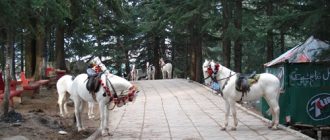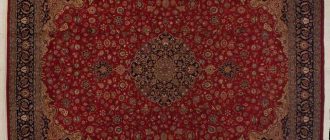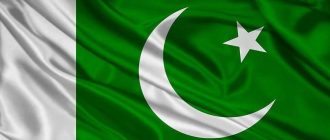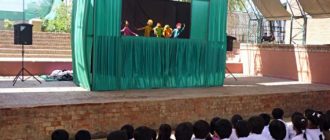Would you like to know all about the interesting Pakistani wedding traditions and customs? Then read our guide for more facts and information….
Pakistani weddings exhibit the Pakistani culture with rich customs which are celebrated with a lot of fervor and enthusiasm. The celebrations are marked with five to six events celebrated with relatives, friends and close family. The extravagance depends on the financial standing of the bride and groom’s family who have to pay for the fun times!
Traditional Pakistani Wedding Events
There are no fixed numbers of events although most families have three main events, the mehndi, baarat and valima. Similar to the level of extravagance involved the financial standing of the bride and groom determines the number of events which aim to continue the celebration for more days.
Magni or the Engagement Ceremony
This marks the official engagement of the couple which is usually a small ceremony conducted in the presence of close family members of the two parties. Most families decide the wedding dates during this function and so this marks the inception of the wedding preparations. After the engagement the groom’s parents distribute mithai or sweets to the bride and their extended families to make the news official.
Mayun
Mayun is a custom which varies according to families as it is practiced for seven or fifteen days before the wedding day. The bride and groom are not allowed to see or talk to each other till the wedding day.
Mayun can be considered the bride’s resting and beautification period as during the days leading to the wedding she is not allowed to do an errands or chores and instead is asked to rest and rejuvenate for the big day. Some families choose to have a gathering to mark this while others only make the bride wear the special Mayun dress which is a traditional yellow shalwar kameez.
One beautification ritual is to apply Uptan which is a paste consisting of herbs, ayurvedic turmeric, sandal wood and oils. Uptan is applied on the bride’s skin every day to enhance the glow of her skin. Uptan was traditionally applied on both the bride and the groom separately by their female relatives.
Dholki
Dholki is a small gathering of family and friends who sing and dance to celebrate. Dhol is the instrument played along which songs are sung, during the dholkis the family and friends learn songs and dances to be performed on the grand event of Rasm-e-Mehndi.
Rasm-e-Mehndi (Henna Party)
Rasm-e-Mehndi is usually held two or three days before the wedding and is hosted by the girl’s parents. During this event the bride and groom’s sides are in a friendly dance off competition. Songs are sung and the traditional customs of applying mehndi, blessing the bride by giving sadka (giving charity to ward off evil) are practiced.
The groom’s family brings the bride’s bridal and other fancy dresses, shoes and handbags which are displayed for the relatives to see. During the entire event the bride has to hide her face from the groom and his family.
Nikkah ceremony of Pakistani weddings
Nikkah is the Islamic wedding ceremony that is mandatory in all Muslim weddings. The Nikkah is attended by close family and friends and is usually held at the bride’s home or at the venue of the Baraat (wedding reception). The men and women are seated separately when the ceremony is performed.
In Islam the Nikkah is a marriage contract signed by the bride and the groom in front of witnesses to testify for their marriage. The Nikkah naama (contract) has terms and conditions which both parties agree to, the clauses pertain to right of divorce, treatment of partners and the specifics of ‘Meher’ which is the mandatory amount the husband has to give to his wife. The Meher has two components, a sum of the total amount is payable when the marriage is consummated and the other sum can be paid at a later date. The purpose of Meher is to act as a safety net for the bride and can be used by her at free will.
The Walis or witness include the father of the bride and groom as well as brothers, uncles and senior relatives. The Maluvi or Imam (leader of the mosque) is invited to read Quranic verses and conduct the Nikkah. He will convey the proposal from the groom to the bride and ask for her consent in the presence of witness which is read aloud. The bride has to say out loud ‘Qubul hai’ meaning I accept and then signs the Nikkah naama. Then the contract is read to the groom and he too has to say ‘Qubul hai’ and sign the document. Finally the maulvi and the witnesses also sign the Nikkah naama as confirmation after which the wedding is legal and official. The Maulvi now read verses from Quran and prays for the blessings on the couple and their families.
Now that the wedding is legal, the groom’s side serves small packets containing dates and sweets for the guests present. The groom is then allowed to sit next to his wife, this marks the first appearance of the couple together.
Baraat
Baraat is the term used for the family, relatives and friends of the groom who accompany him to the wedding reception hosted by the bride’s side. The groom arrives in a car decorated with flowers while the Baraat follows the groom’s car. He receives a warm welcome from the bride’s side and is presented with rose garlands and rose petals are showered on him.
After the groom is seated on the stage, the bride is escorted to the stage by the parents or siblings. The couple and their parents receive gifts as well as monetary tokens from their invitees. The closer relatives give more while friends give gifts. Once all the guests have arrived, dinner is served which depends on which caste the girl belongs to as different castes have special dishes.
Ruksati takes place when the bride bids farewell to her family and is ready to go to her new home. As she makes way from the stage to the car, the Holy Quran is held over her head as a blessing.
Valima
Valima is the ceremony hosted by the groom’s parents to celebrate their son’s wedding. The family, relatives and friends from both sides are invited who take pictures with the couple.
Modern Pakistani Wedding Traditions
Some of the traditions are more cultural than religious which have been inspired by the wedding rituals in neighboring India. For instance Uptan is widely practiced in Indian weddings and very few Pakistani families practice it. Some families consider Mehndi, Rasm-e-Henna and Mayun to be un-Islamic practices and so only have Baraat and Valima.
Celebrating more events increases the financial burden of the families and so modern Pakistani weddings have events jointly hosted by the bride and groom’s parents to share the cost. This helps share the burden and maintain the standard of the event.
Pakistani Wedding Food
Food is an integral part of all Pakistani Wedding events. Many people say that a wedding is remembered years later by how good the food was. The menu selected in the events depends on the cultural belonging of the bride and groom as Sindhis, Punjabis and Muhajirs all have different specialty dishes. Modern Pakistani weddings also serve European and Chinese cuisine in their events. Many families are also having themed events which have the décor and food according to the theme selected.
Pakistani weddings are a major reason why the business community is thriving in Pakistan. It is an affair celebrated with a lot of fervor, cultural traditions and festivities. Many foreigners and tourists love attending weddings on their visit as it brings them closer to the Pakistani culture.





